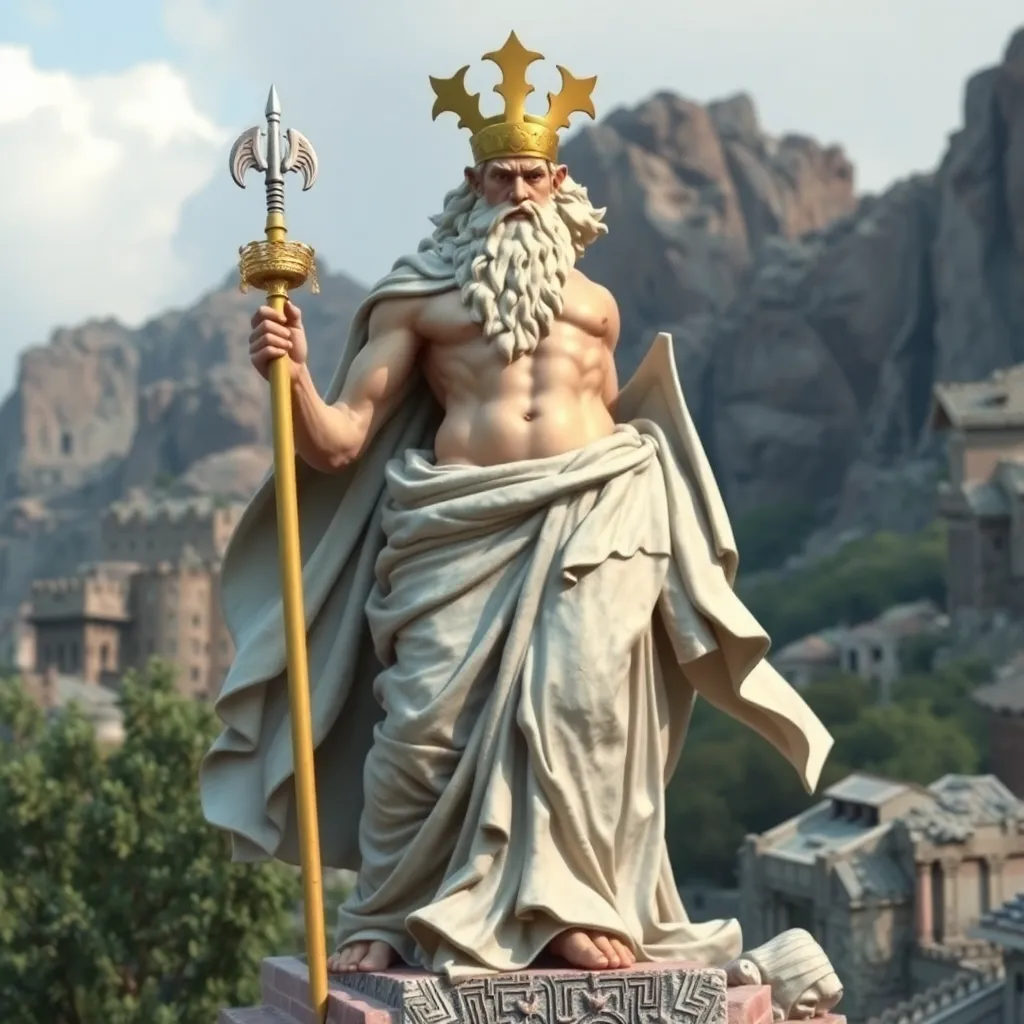Zeus and the Concept of Divine Protection: Myths of Guardianship
I. Introduction
Zeus, the King of the Gods in Greek mythology, stands as a powerful figure symbolizing authority, justice, and divine protection. As the ruler of Mount Olympus, Zeus presides over the pantheon of gods and goddesses, playing a critical role in the lives of mortals and the cosmos. Central to ancient Greek culture was the concept of divine protection, a belief that the gods, particularly Zeus, watched over humanity, offering safety and guidance.
This article aims to explore the myths of guardianship associated with Zeus, delving into his protective role in both mortal affairs and divine matters. Through various myths and stories, we will uncover how Zeus’s guardianship shaped the beliefs and practices of ancient Greek society.
II. The Role of Zeus in Greek Mythology
Zeus is often recognized as the son of Cronus and Rhea, and he is the youngest of his siblings, which include Hera, Poseidon, Hestia, Demeter, and Hades. His lineage and significance among the Olympian gods are paramount, as he leads them in their divine responsibilities.
Zeus is associated with several attributes and symbols that underline his power and influence:
- Thunderbolt: A symbol of his authority and ability to enforce justice.
- Eagle: A representation of strength and a divine messenger.
- Oak Tree: Sacred to Zeus, symbolizing strength and endurance.
His responsibilities encompass a vast array of powers, including the control of weather, upholding law and order, and ensuring the balance of justice among gods and mortals alike.
III. Myths of Guardianship: Zeus as Protector
Zeus’s role as a protector is vividly illustrated in various myths where he actively intervenes in the lives of mortals and heroes. One of the most notable examples is his involvement in the Trojan War, where he played a crucial role in the fate of both sides, often swaying the outcomes based on his sense of justice and protection for his favored mortals.
Another key aspect of Zeus’s guardianship is the concept of “xenia,” or hospitality. Zeus is often regarded as the protector of guests and travelers, enforcing laws of hospitality throughout Greece. This sacred bond between host and guest was believed to be overseen by Zeus himself, ensuring safety and respect for all.
IV. The Relationship Between Zeus and Other Deities
Zeus’s guardianship is not an isolated phenomenon; it often involves collaboration with other deities. For instance, Athena, the goddess of wisdom and warfare, often worked alongside Zeus, providing guidance and protection to heroes like Odysseus.
Myths showcase alliances among gods that emphasize their collective role in ensuring protection:
- Zeus and Athena’s support for the Greeks during the Trojan War.
- Zeus and Hermes as protectors of travelers and merchants.
This collaborative guardianship illustrates the balance of power among the gods, where each deity contributes to the safety and well-being of mortals.
V. Zeus’s Protection of Cities and Communities
Zeus is often invoked as the protector of city-states, earning titles such as Zeus Polieus. Ancient Greeks built temples and conducted rituals to seek his favor for protection against external threats and disasters.
Rituals and offerings made to Zeus for protection included:
- Sacrifices of animals, often sheep or bulls.
- Public prayers and dedications at temples.
- Festivals celebrating Zeus, such as the Olympic Games.
Famous temples dedicated to Zeus, like the Temple of Zeus at Olympia, served not only as places of worship but also as symbols of communal identity and divine favor.
VI. The Duality of Zeus’s Protection
The protective nature of Zeus also carries a duality, where divine protection can be conditional. While he offers safety to those who honor him, he also enforces justice and can impose consequences on those who transgress moral boundaries.
Myths where Zeus’s protection leads to moral lessons include:
- The fate of Prometheus, who, despite his good intentions in aiding humanity, faced Zeus’s wrath for stealing fire from the gods.
- The tale of Lycaon, who challenged Zeus’s divinity and was punished severely.
This concept of divine retribution emphasizes that while Zeus protects, he also upholds justice, ensuring that moral lessons are conveyed through his actions.
VII. Modern Interpretations of Zeus and Divine Protection
The influence of Zeus extends beyond ancient mythology into contemporary literature and art. His character often embodies themes of authority, justice, and the complexities of guardianship.
Psychological perspectives also explore the role of guardianship in mythology, examining how figures like Zeus reflect humanity’s innate desire for safety and protection. The narratives surrounding Zeus resonate with modern concepts of safety, leadership, and moral responsibility.
VIII. Conclusion
In summary, Zeus’s significance in the context of divine protection is profound and multifaceted. His myths of guardianship illustrate not only the protective nature of the divine but also the responsibilities that come with power. The enduring legacy of Zeus’s stories continues to influence contemporary culture, reminding us of the importance of guardianship in both mythology and society.
Ultimately, the myths surrounding Zeus invite reflection on the complexities of protection, justice, and the ever-relevant pursuit of safety in our lives.




